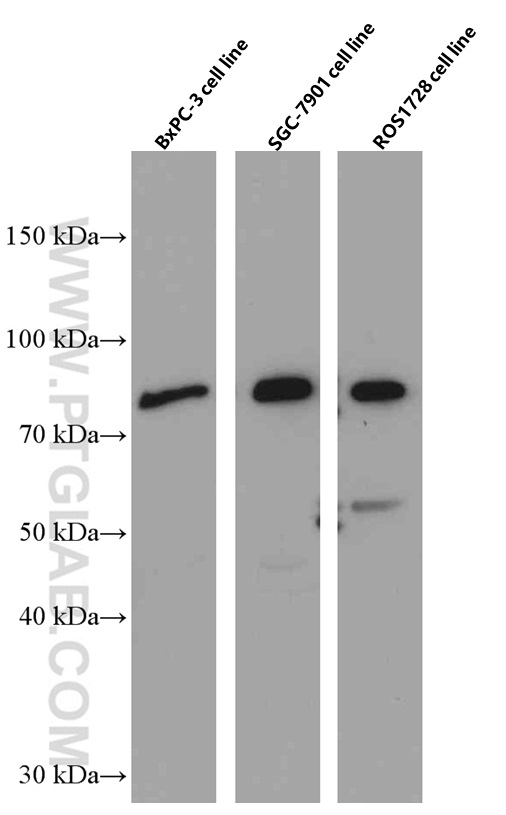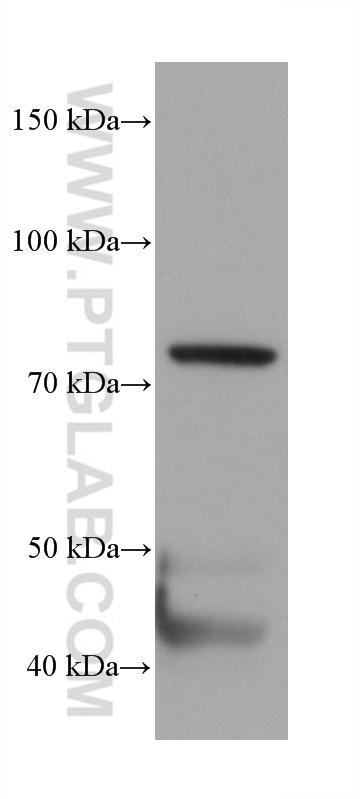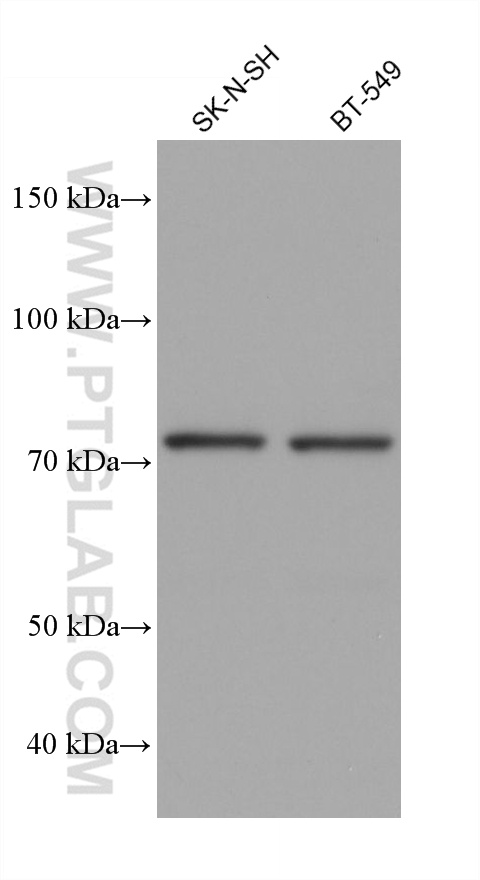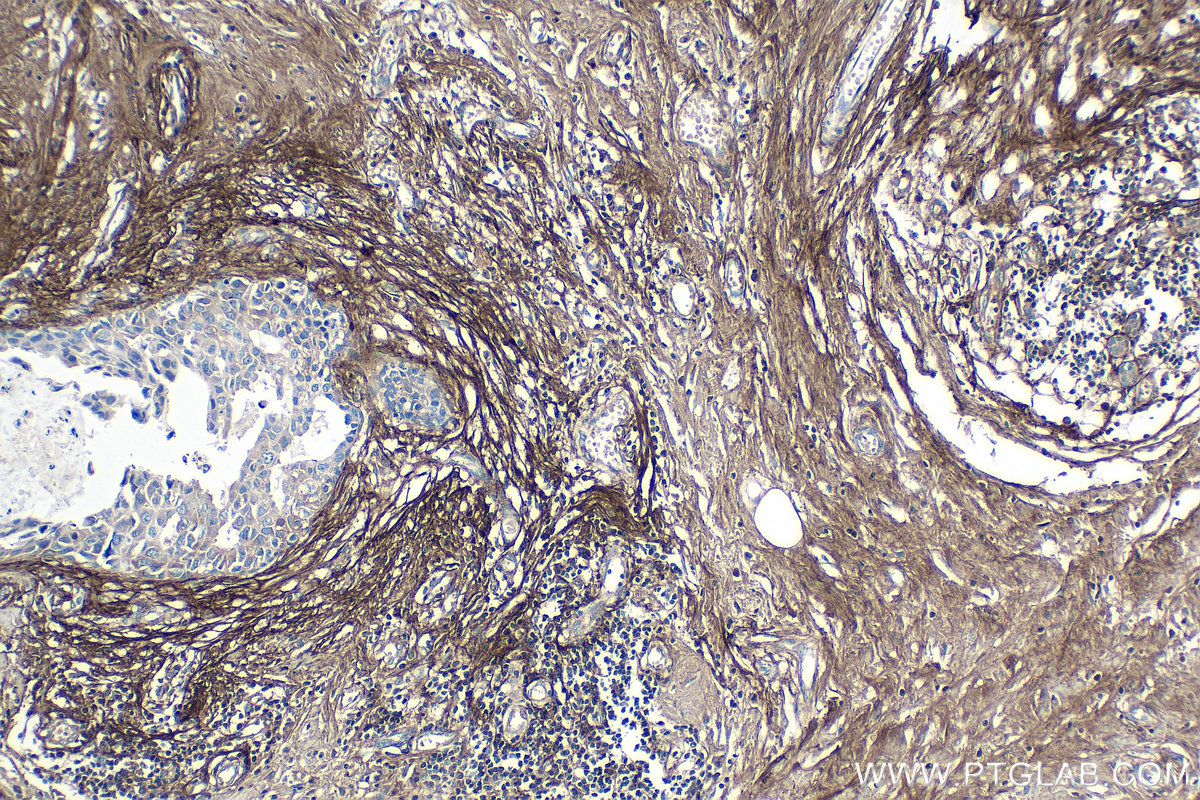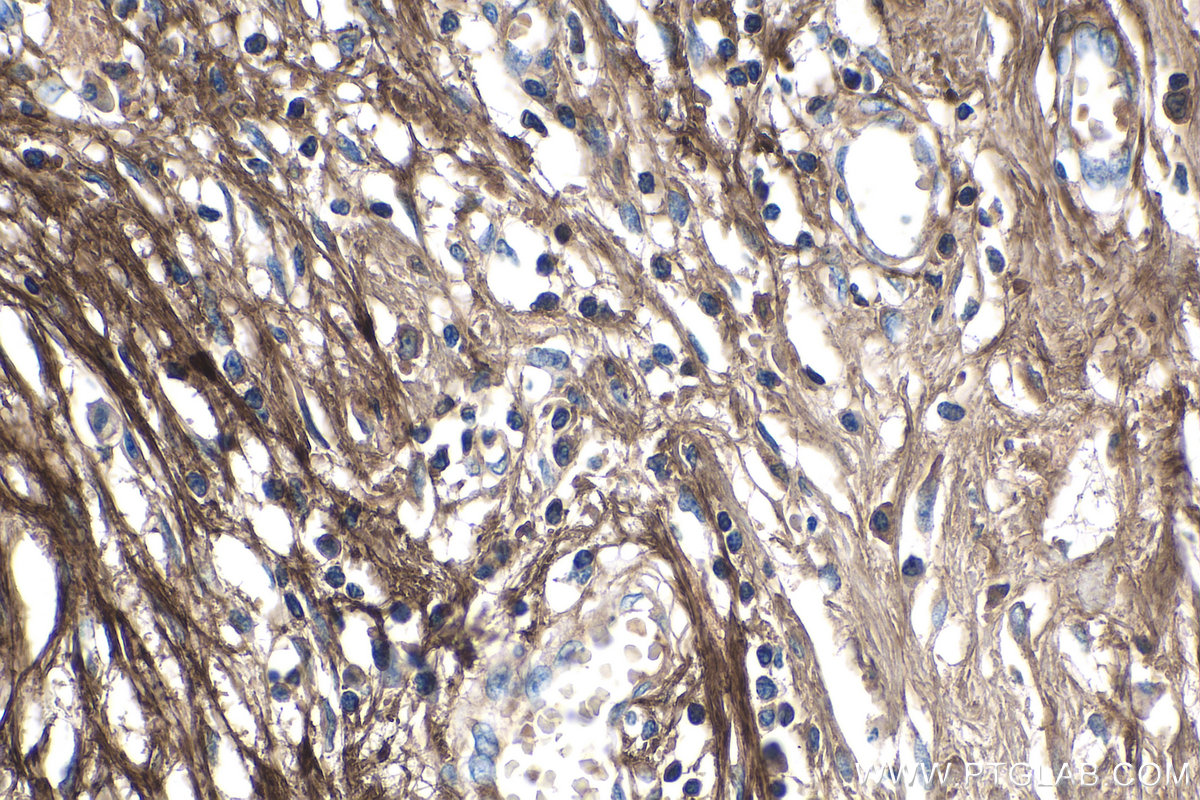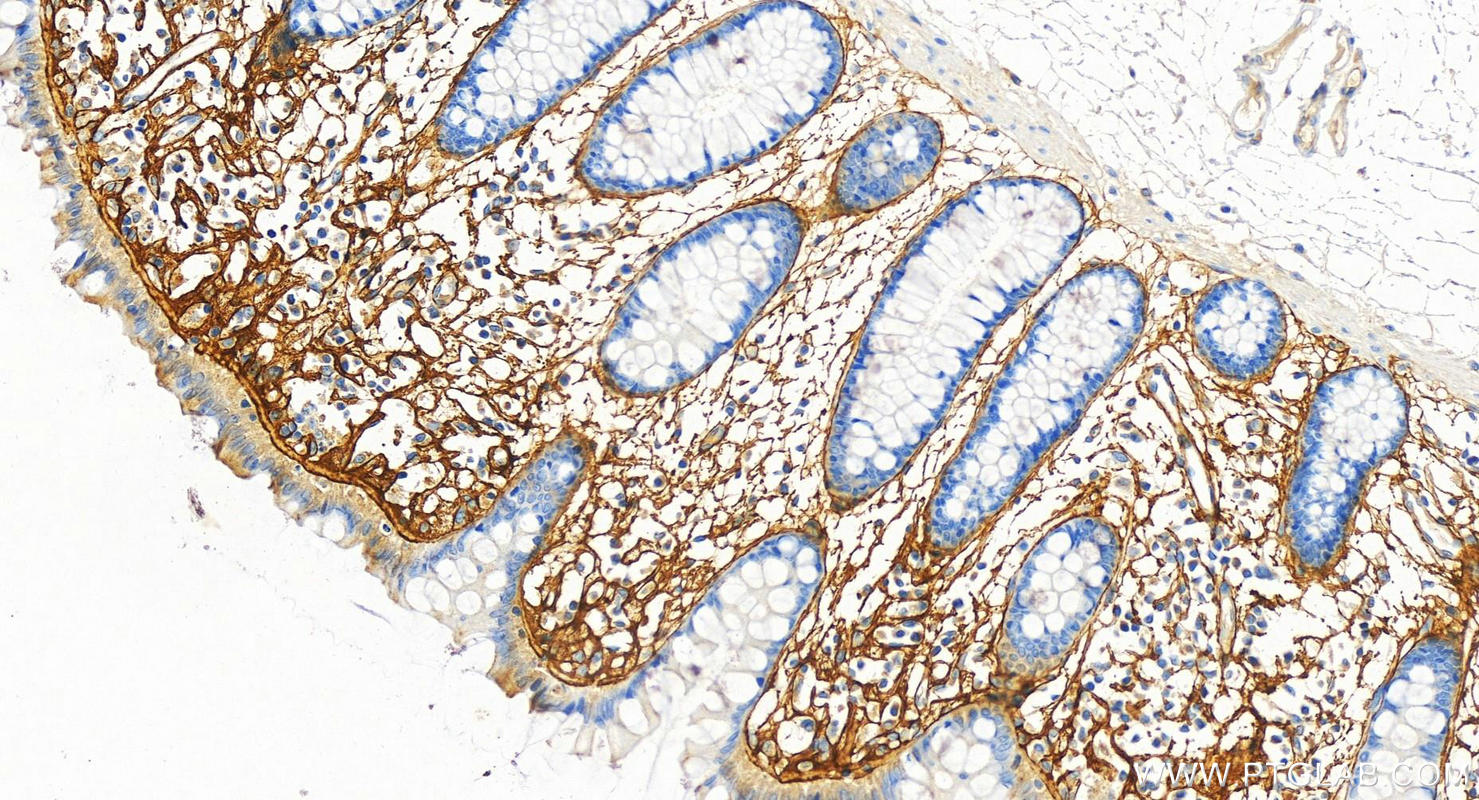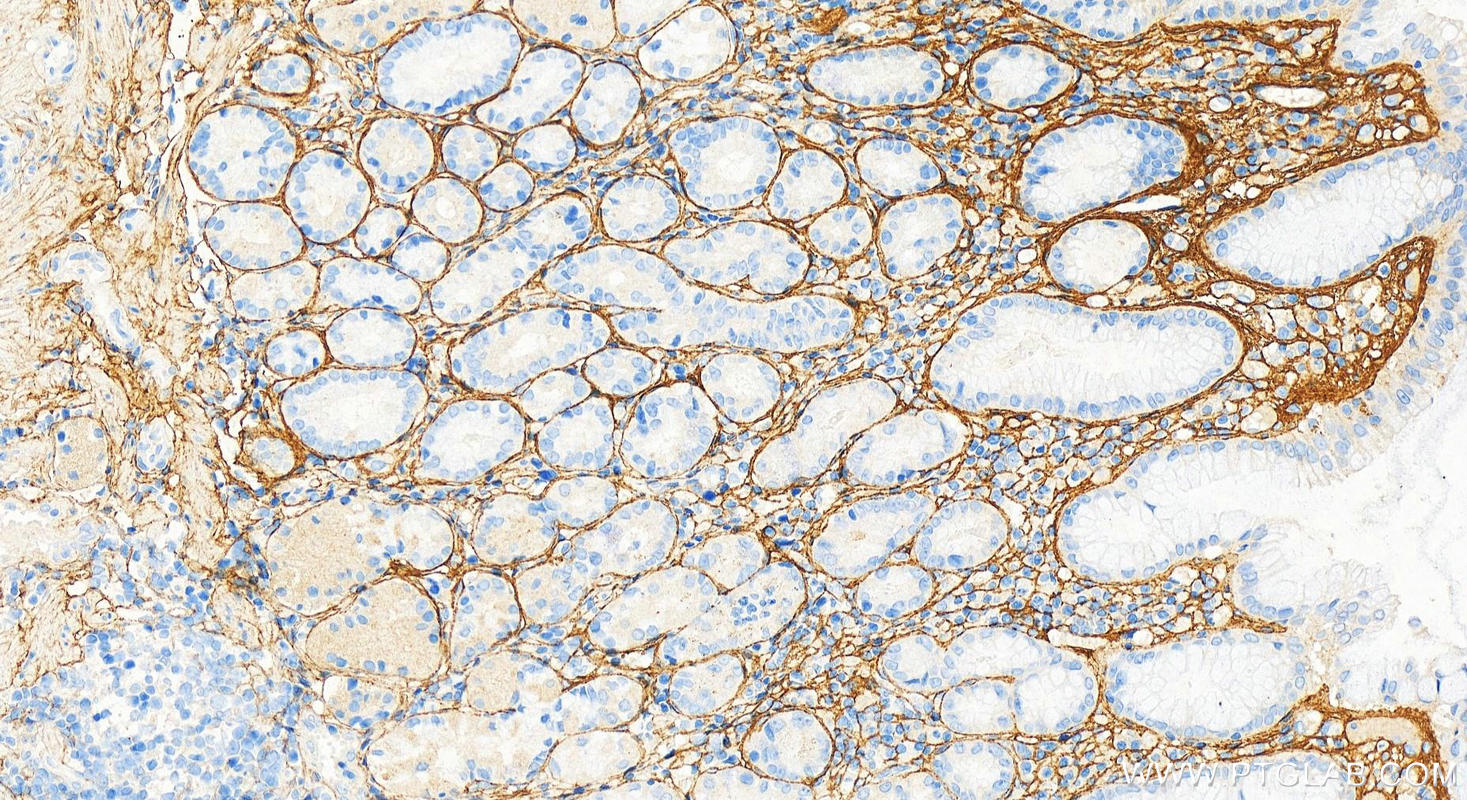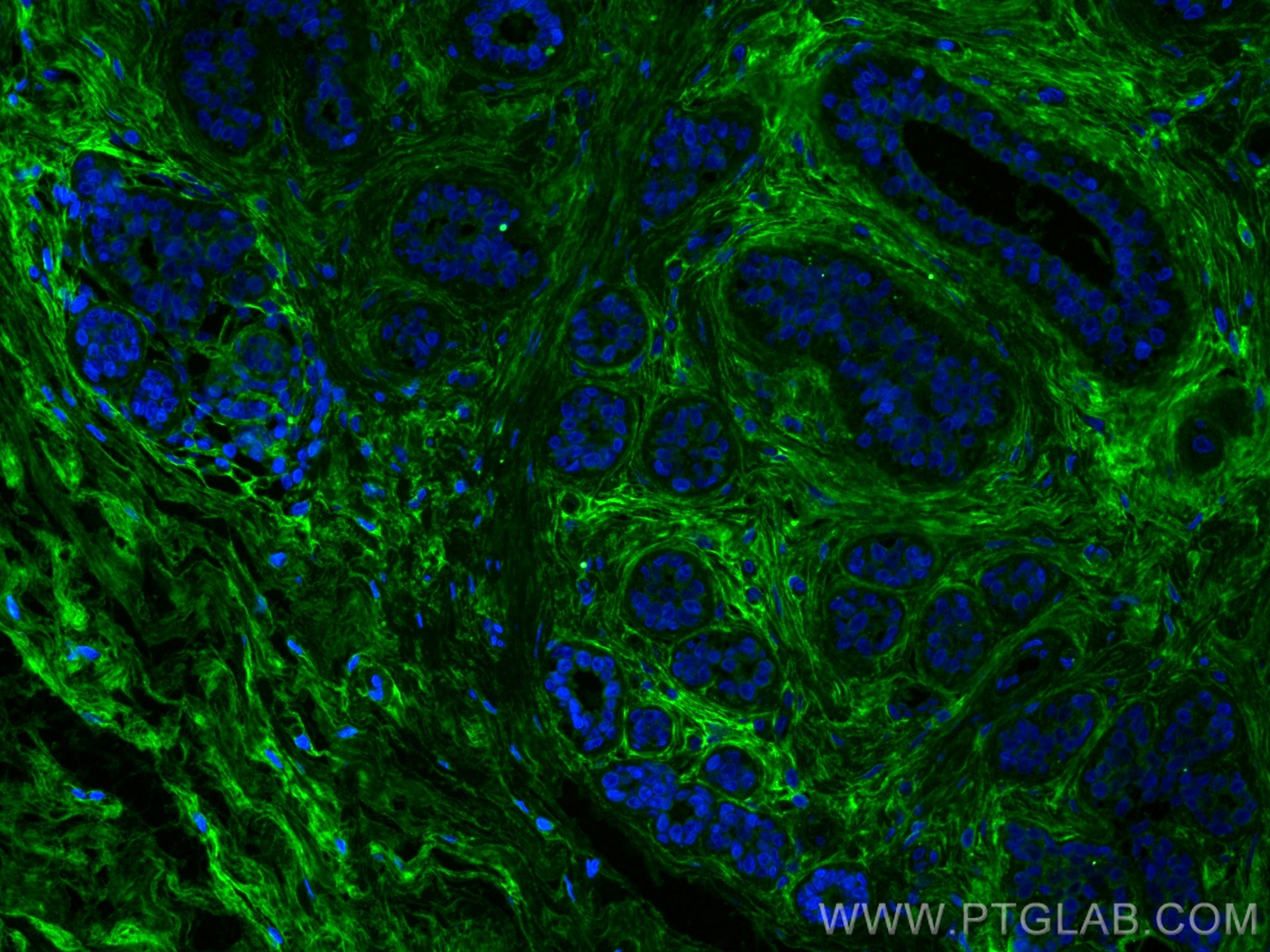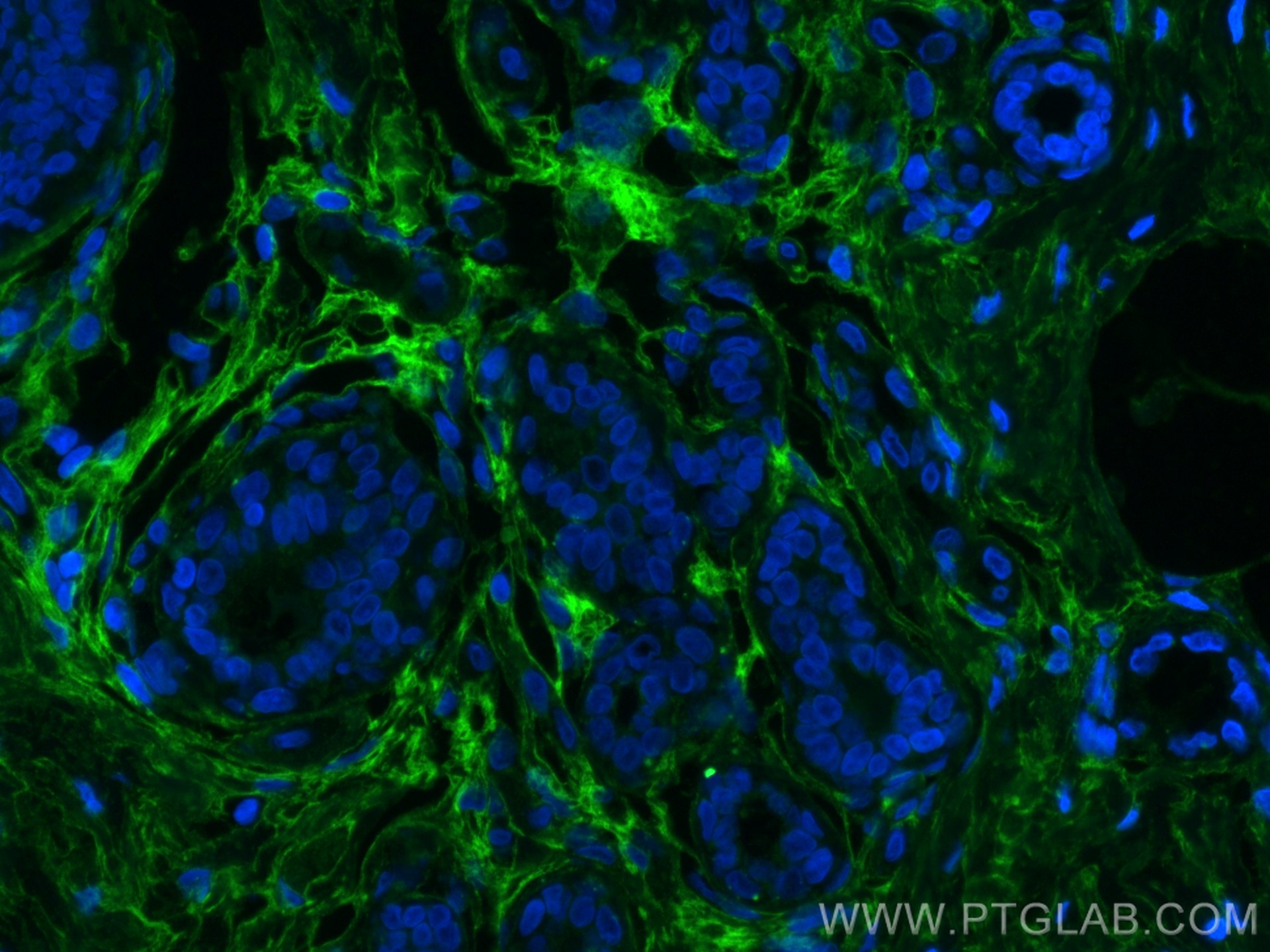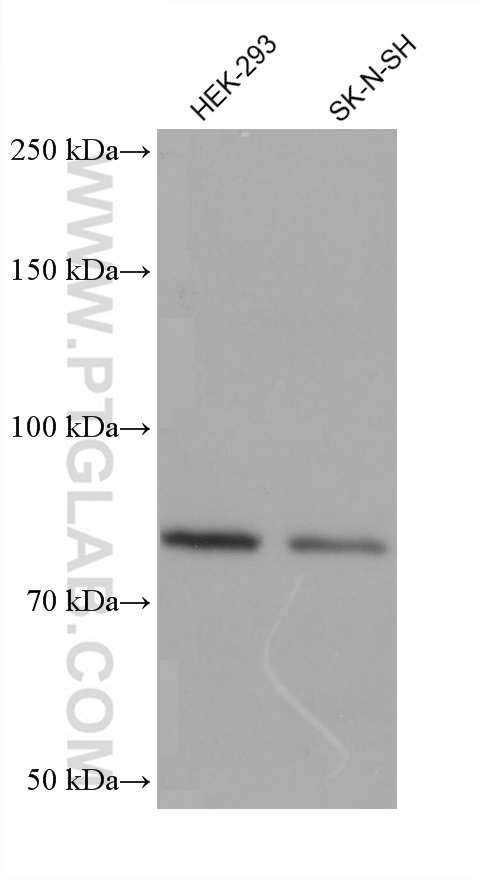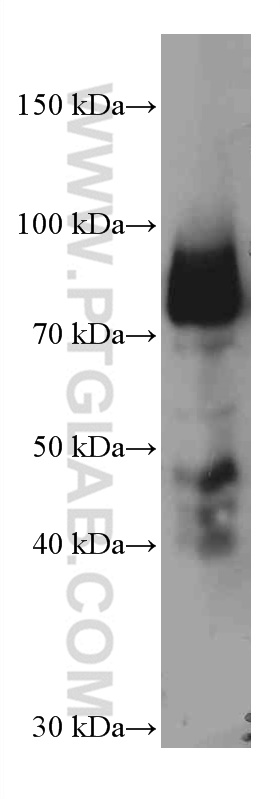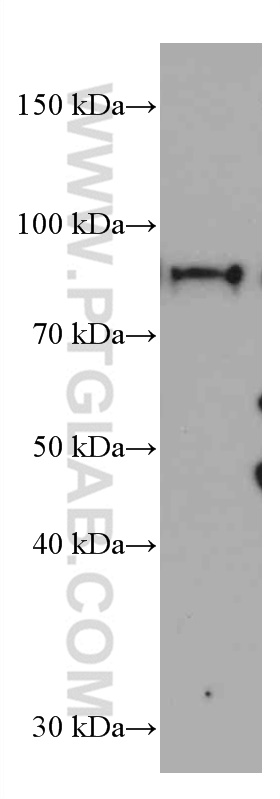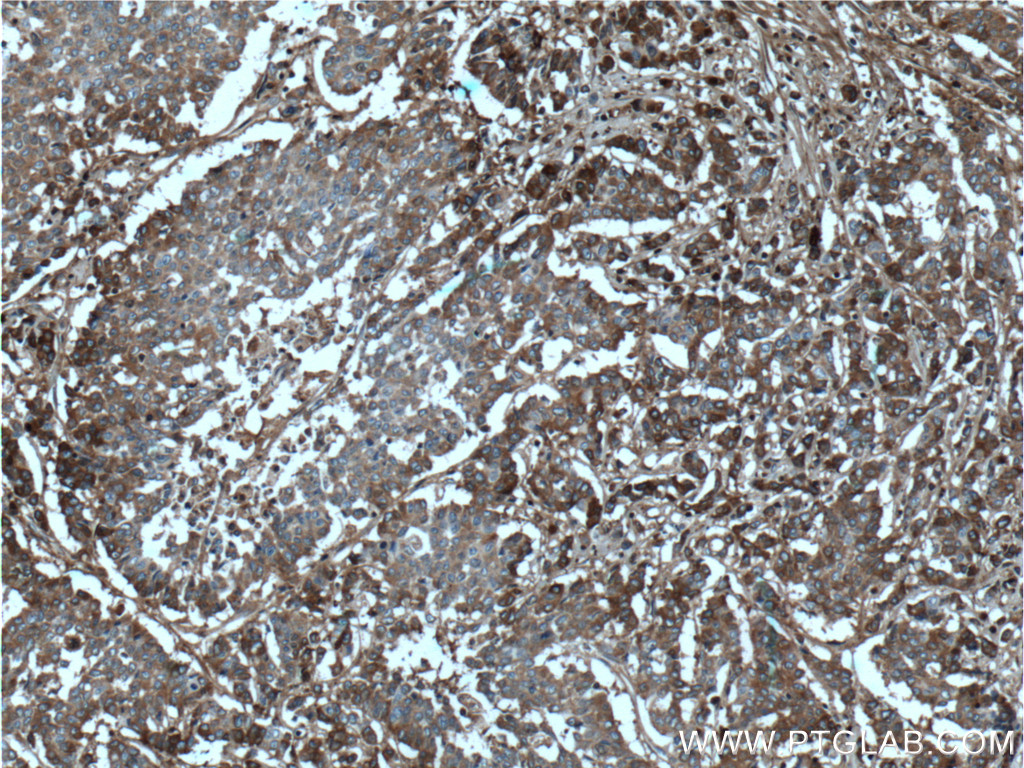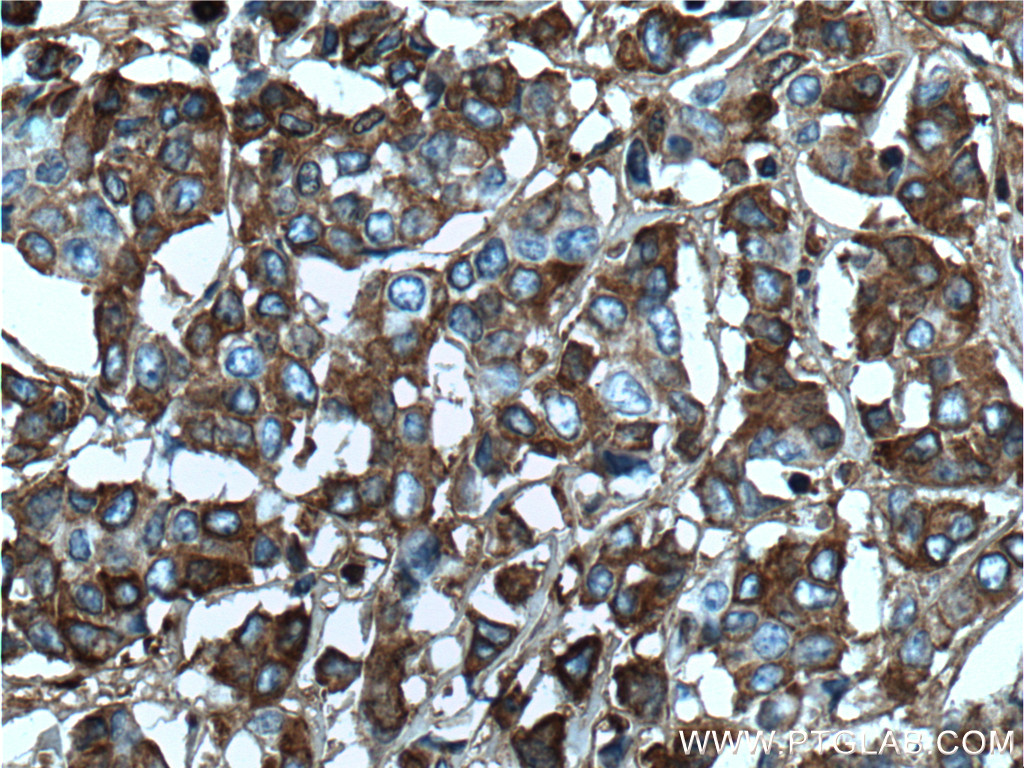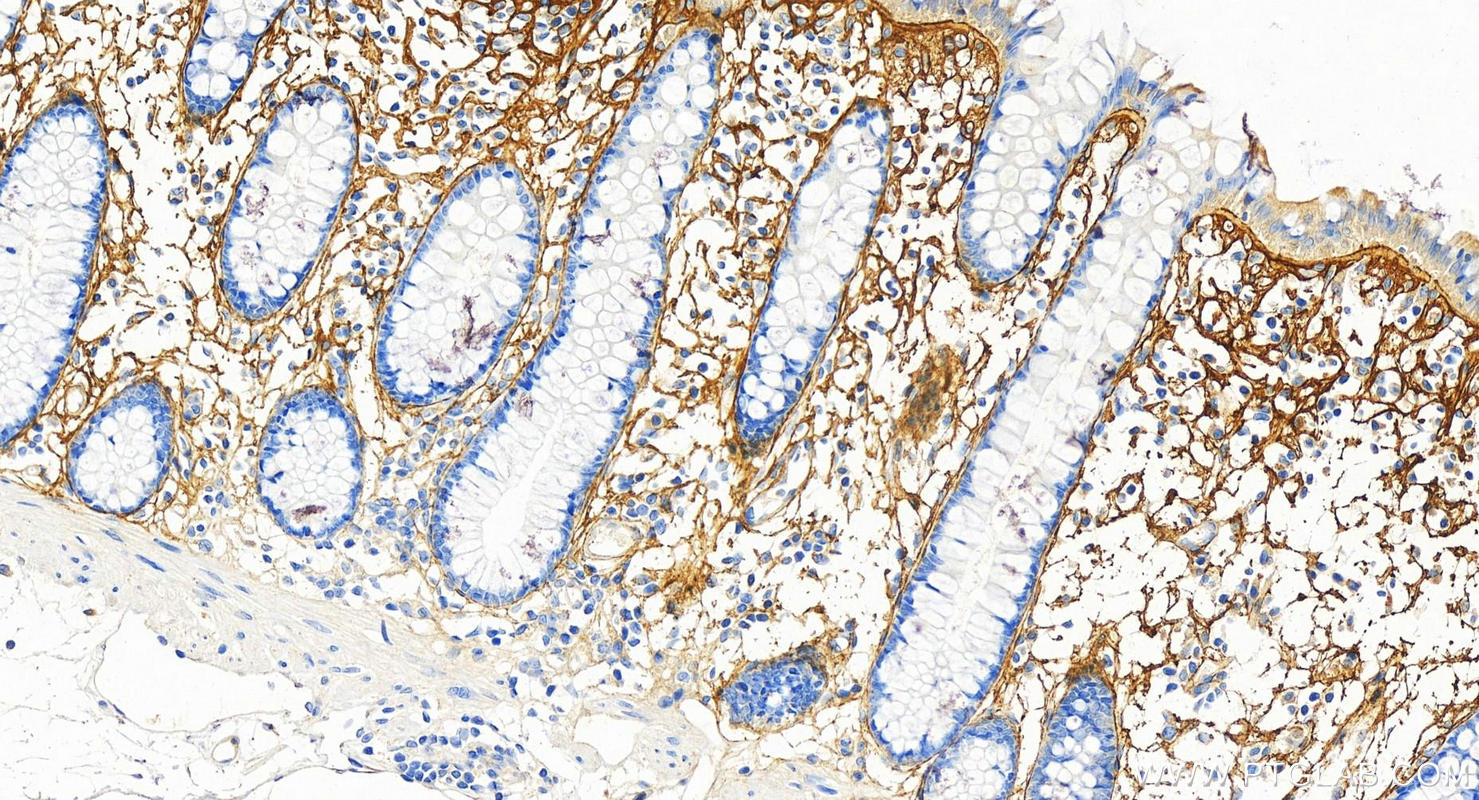验证数据展示
产品信息
66491-1-PBS targets Periostin in WB, IHC, IF-P, IF-Fro, ELISA applications and shows reactivity with human, mouse, rat samples.
| 经测试应用 | WB, IHC, IF-P, IF-Fro, ELISA Application Description |
| 经测试反应性 | human, mouse, rat |
| 免疫原 |
CatNo: Ag14487 Product name: Recombinant human POSTN protein Source: e coli.-derived, PET28a Tag: 6*His Domain: 21-368 aa of BC106710 Sequence: ANNHYDKILAHSRIRGRDQGPNVCALQQILGTKKKYFSTCKNWYKKSICGQKTTVLYECCPGYMRMEGMKGCPAVLPIDHVYGTLGIVGATTTQRYSDASKLREEIEGKGSFTYFAPSNEAWDNLDSDIRRGLESNVNVELLNALHSHMINKRMLTKDLKNGMIIPSMYNNLGLFINHYPNGVVTVNCARIIHGNQIATNGVVHVIDRVLTQIGTSIQDFIEAEDDLSSFRAAAITSDILEALGRDGHFTLFAPTNEAFEKLPRGVLERIMGDKVASEALMKYHILNTLQCSESIMGGAVFETLEGNTIEIGCDGDSITVNGIKMVNKKDIVTNNGVIHLIDQVLIPD 种属同源性预测 |
| 宿主/亚型 | Mouse / IgG1 |
| 抗体类别 | Monoclonal |
| 产品类型 | Antibody |
| 全称 | periostin, osteoblast specific factor |
| 别名 | 1A11A3, OSF 2, OSF2, OSF-2, Osteoblast specific factor 2 |
| 计算分子量 | 93 kDa |
| 观测分子量 | 85-90 kDa |
| GenBank蛋白编号 | BC106710 |
| 基因名称 | Periostin |
| Gene ID (NCBI) | 10631 |
| RRID | AB_2881856 |
| 偶联类型 | Unconjugated |
| 形式 | Liquid |
| 纯化方式 | Protein G purification |
| UNIPROT ID | Q15063 |
| 储存缓冲液 | PBS only, pH 7.3. |
| 储存条件 | Store at -80°C. The product is shipped with ice packs. Upon receipt, store it immediately at -80°C |
背景介绍
Periostin (POSTN, PN), originally named as osteoblast-specific factor 2 (OSF-2), is a 90-kDa secreted protein which is now classified as a matricellular protein. It is present in a wide variety of normal adult tissues and fetal tissues, and has a role in bone, tooth and heart development and function. Studies show that periostin is overexpressed in a broad range of human cancer types, including lung, ovary, breast and colon cancers. Recent evidence reveals that periostin is expressed by fibroblasts in the normal tissue and in the stroma of the primary tumour, and it is required to allow cancer stem cell maintenance. The isoforms of periostin are between 83 and 93 kDa in mass and differ in their C-terminal sequences, characterized by individual presence or absence of cassette exons 17-21 (UniProtKB/Swiss-Prot, PMID: 21997759).

